Clogged kitchen sinks are a common household problem that can be caused by various factors such as food scraps, soap scum, and grease build-up. While unclogging a sink may seem like a daunting task, it can easily be done with the right tools and techniques. In this guide, we’ll focus specifically on how to unclog grease in kitchen sink.
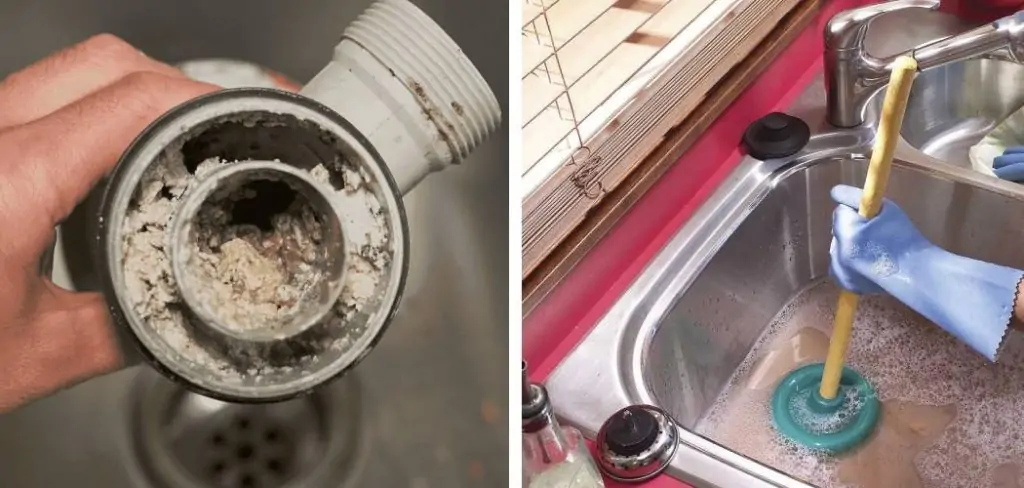
Some Common Causes of Grease Clogs in Kitchen Sinks
1. Grease Buildup
One of the most common causes of grease clogs in kitchen sinks is the buildup of grease and other fats. Over time, these fats can accumulate on the walls of pipes and create a blockage that prevents water from flowing through. To prevent this from happening, it’s important to avoid pouring any oils or greases down the sink drain. Additionally, you should also try to scrape as much food residue off dishes before washing them in order to reduce the amount of fat that goes down the drain.
2. Soap Scum
Another common cause of grease clogs in kitchen sinks is soap scum. Soap scum is a combination of dirt, oils, and soap that accumulates on the walls of pipes over time. This accumulation can eventually lead to a blockage that prevents water from flowing through properly. To prevent this from happening, it’s important to use an enzyme-based cleaner regularly to help break down and remove any soap scum buildup in your pipes.
3. Hair
Hair is another common cause of grease clogs in kitchen sinks. Hair can easily become tangled up with other debris such as food particles and soap scum, creating a blockage that prevents water from flowing through properly. To prevent this from happening, it’s important to clean out your sink strainer regularly and avoid letting hair go down the drain whenever possible.
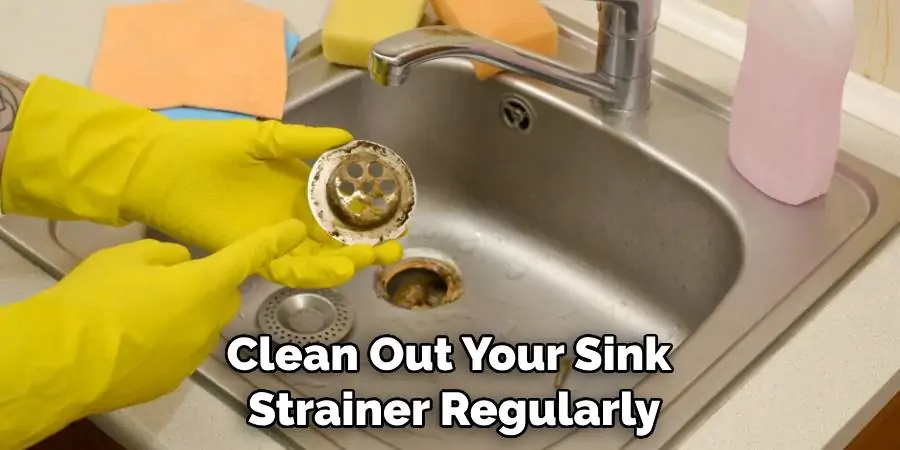
4. Food Particles
Food particles are another common cause of grease clogs in kitchen sinks. These particles can easily become stuck on the walls of pipes and create a blockage that prevents water from flowing through properly. To prevent this from happening, it’s important to avoid putting large chunks of food down the sink drain and always run hot water for several minutes after washing dishes to flush out any remaining food particles or grease residue.
5. Tree Roots
Tree roots are another potential cause of grease clogs in kitchen sinks, although they are less common than some other causes mentioned here. Tree roots can grow into sewer lines and create blockages that prevent water from flowing through properly, so it’s important to have your sewer lines inspected regularly if you suspect tree root intrusion may be an issue for you
Tools You Will Need
To effectively remove grease from your kitchen sink, you will need the following tools:
- Plunger
- Baking soda
- Vinegar
- Boiling water
- Wire hanger or drain snake
5 Step Guide on How to Unclog Grease in Kitchen Sink
Now that you have your tools ready, here’s a step-by-step guide on how to unclog grease in kitchen sink:
Step 1: Boiling Water
One of the simplest and most effective ways to unclog grease in a kitchen sink is by pouring boiling water down the drain. The hot water will help to melt and loosen any built-up grease or grime that may be causing the clog. This method is especially effective if the clog is relatively new and has not had time to harden yet.
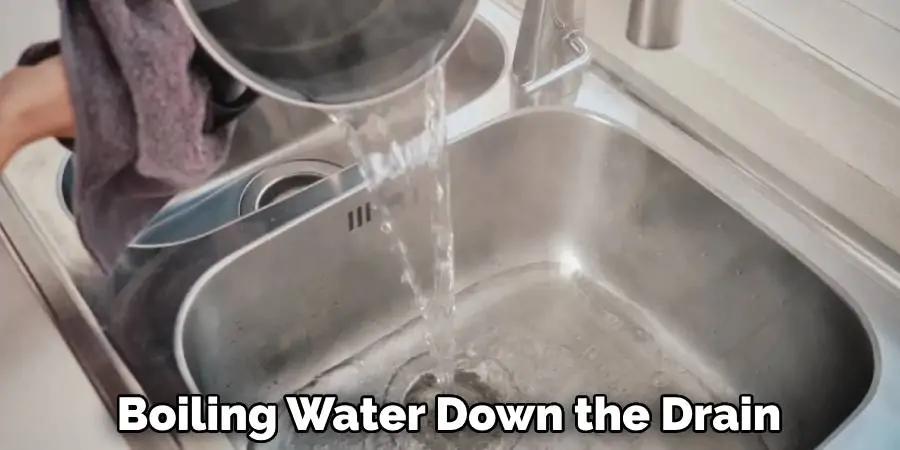
Step 2: Baking Soda and Vinegar
Another way to unclog grease in a kitchen sink is by using baking soda and vinegar. Start by pouring a half cup of baking soda into the drain, followed by a cup of white vinegar. Cover the drain with a plug or rag and let it sit for 30 minutes before flushing it out with hot water. The combination of baking soda and vinegar can help to break down any stubborn grease or grime that may be causing the clog.
Step 3: Plunger
A plunger can also be used to unclog grease in a kitchen sink. Start by filling the sink with enough water so that it covers the plunger’s cup, then place the plunger over the drain opening and pump vigorously for several minutes until you feel resistance from the clog being released. Once you’ve broken up the clog, flush out any remaining debris with hot water.
Step 4: Wire Hanger
If you don’t have a plunger handy, you can use an old wire hanger to try and break up any built-up grease or grime that may be causing your kitchen sink clog. First, straighten out the hanger as much as possible to create a long rod, then insert it into your drain opening and start twisting it around until you feel resistance from breaking up any blockages within your pipes. Finally, flush out any remaining debris with hot water once you’re finished cleaning out your pipes.
Step 5: Chemical Cleaners
Chemical cleaners are another option for unclogging grease in kitchen sinks, though they should only be used as a last resort since they can cause damage to certain types of plumbing pipes if used too often or improperly applied. Before using any chemical cleaner on your pipes, make sure to read all instructions carefully first so that you know how much of each cleaner should be used and how long it should stay in your pipes before being flushed out with hot water.
How Often Should You Clean Your Kitchen Sink Drain?
To keep your kitchen sink drain in good condition and prevent clogs, it’s recommended to clean it at least once a week. However, if you notice any slow draining or foul odors coming from your sink, then it’s important to clean it more frequently to prevent further issues. Regularly cleaning and maintaining your kitchen sink will not only help to prevent clogs but also ensure that your plumbing system runs smoothly and efficiently. So make sure to add this task to your weekly cleaning routine for a clog-free kitchen sink!
Remember, prevention is key when it comes to keeping your kitchen sink free from grease and other common clogs. By following these tips and regularly cleaning your sink, you can avoid the hassle of dealing with a clogged kitchen sink and keep your plumbing system running smoothly. With the right tools and a little bit of preventive maintenance, you can have a clean and functioning kitchen sink all year round! So don’t let grease clogs get the best of you – take action today to keep your kitchen sink free from buildup and blockages.
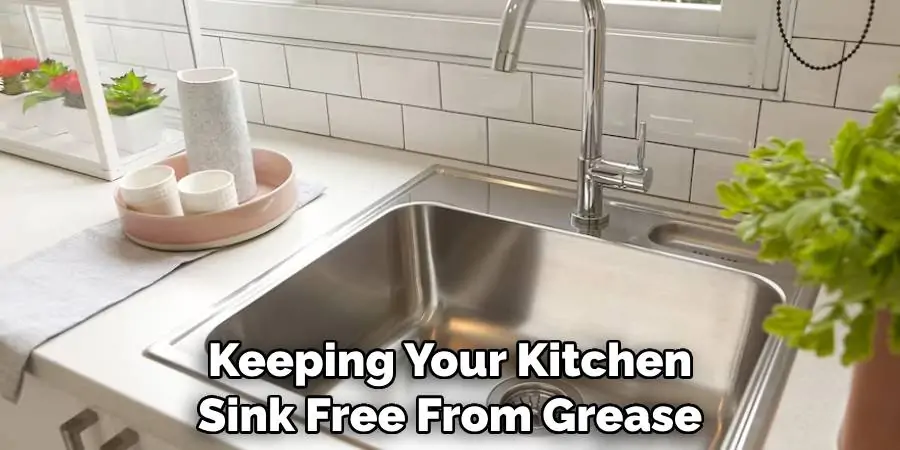
Frequently Asked Questions
What Will Dissolve Fat in a Drain?
There are a few different options for dissolving fat in a drain, including using boiling water, baking soda and vinegar, or chemical cleaners. However, it’s important to use these methods carefully and sparingly to avoid damaging your plumbing pipes. Regular maintenance and proper disposal of cooking oils and fats are also key in preventing fat buildup in drains. Always read instructions carefully before using any products or chemicals on your plumbing system.
How Do You Unblock a Sink Full of Fat?
If your sink is completely blocked with fat, the best method would be to use a plunger or a wire hanger to physically break up the clog. You can also try pouring boiling water down the drain or using baking soda and vinegar to help dissolve the fat. However, if none of these methods work, it may be necessary to call a professional plumber for assistance. It’s important to never use chemical cleaners in a completely blocked sink, as they can cause damage to your pipes.
What Unblocks Grease From a Sink?
Grease can be effectively unblocked from a sink by using hot water, dish soap, baking soda and vinegar, a plunger, or a wire hanger. Chemical cleaners should only be used as a last resort and with caution to avoid damaging your plumbing pipes. Regularly cleaning and maintaining your kitchen sink can also help to prevent grease build-up and clogs in the first place. If you’re unsure of the best method to use, it’s always recommended to consult a professional plumber for advice. Remember, prevention is key when it comes to keeping your sink free from grease and other common clogs! Make sure to take proactive measures and regularly clean your sink to avoid any future issues. Your plumbing system will thank you!
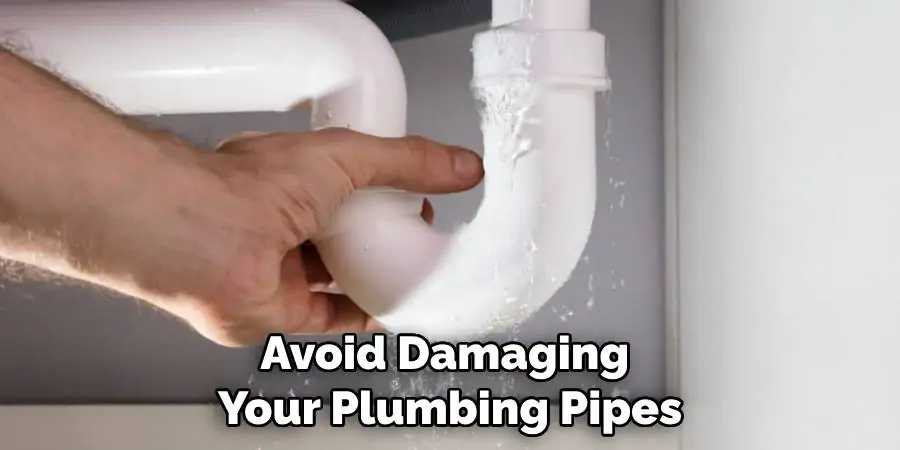
Conclusion
Now you have a few options on how to unclog grease from your kitchen sink. Have a plumber come in and do it the most efficient way or try any of the solutions above as they are sure to help remove that clog and make your drainage system much better. All of these methods will require some work, but at least you can rest assured that the process is quite simple. The best thing about this? Once the grease clog is gone, your drain will maintain its efficient flow for longer periods.
So don’t let the thought of ‘how to unclog grease in kitchen sink’ scare you, just follow the tips mentioned above and make sure those pesky clogs don’t take over again! Taking preventative measurements after cleaning can also be beneficial; use strainers or buy pipe guards to keep gunk away from entering. Now go forth and tackle all those once-bothersome clogs with confidence!
